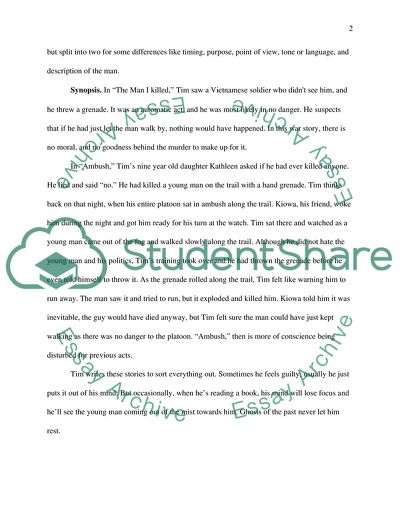The Things They Carried by Tim O'Brien Book Report/Review Example | Topics and Well Written Essays - 1750 words. https://studentshare.org/literature/1711280-comparecontrast-the-the-man-i-killed-and-ambush-in-regard-to-purpose-point-of-view-tonelanguage
The Things They Carried by Tim O'Brien Book Report/Review Example | Topics and Well Written Essays - 1750 Words. https://studentshare.org/literature/1711280-comparecontrast-the-the-man-i-killed-and-ambush-in-regard-to-purpose-point-of-view-tonelanguage.


